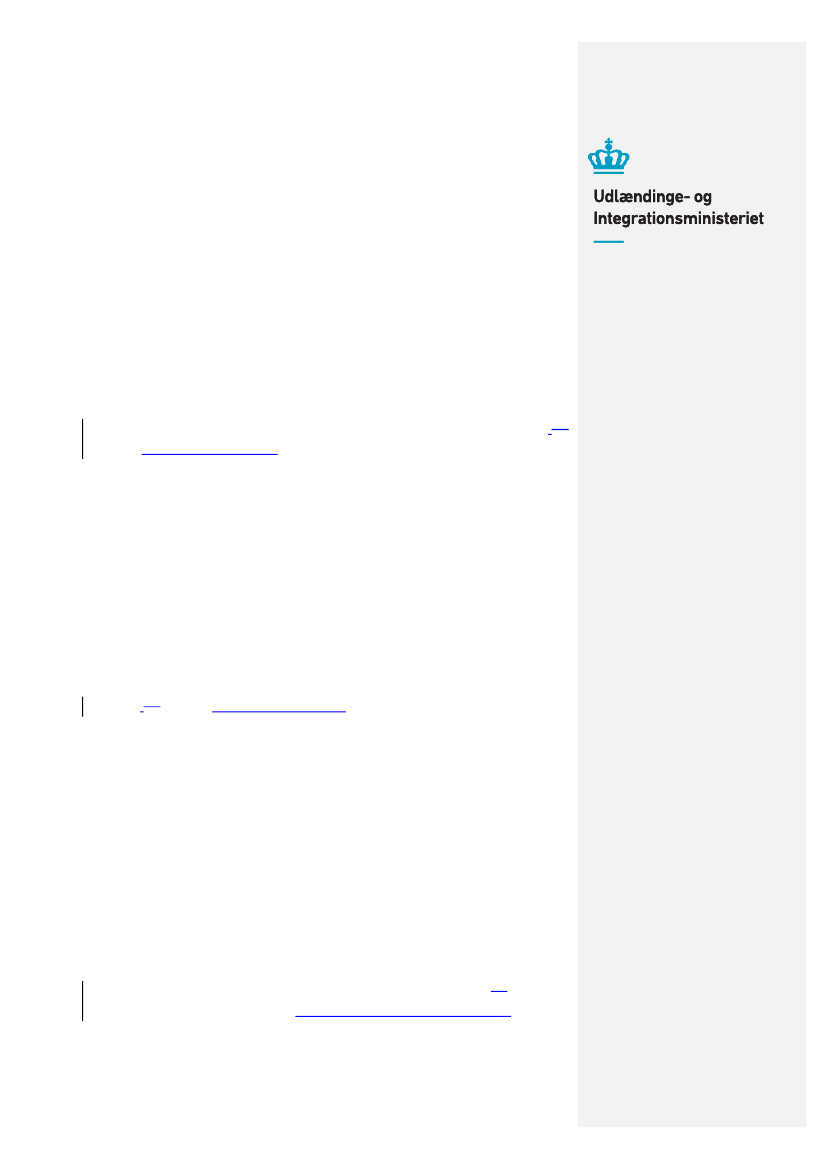
Notat
Processing of applications for Danish citizenship by naturalisation from appli-
cants covered by the UN Convention on the Reduction of Statelessness of 1961
(the 1961 Convention), and who PET (the Danish Security and Intelligence Ser-
vice) assesses as a potential threat to national security, or who are charged,
or
indicted
or under investigation
for offences against national security or a crimi-
nal offence that can result in imprisonment of 5 years or more
1. Introduction and background
Under the 1961 Convention, Denmark is obliged to grant citizenship to persons
who are born in Denmark and covered by the 1961 Convention, provided that the
conditions of the convention are met. In principle, this also applies for persons
who the Danish Security and Intelligence Service (PET) assesses as a potential
threat to national security.
The government does not wish to grant Danish citizenship to stateless persons
covered by the 1961 Convention if PET assesses that the person in question is a
potential threat to national security, or if the person in question is currently
charged,
or
indicted
or under investigation
for offences against national security
or a criminal offence that can result in imprisonment of 5 years or more.
The government notes in this connection that the 1961 Convention does not in
itself oblige the contracting states to grant citizenship to an applicant covered by
the convention immediately upon the submitted application. In this regard, the
convention does not contain a requirement of case processing within a defined
time. Furthermore, in the assessment of the government, it would not contravene
the object and purpose of the 1961 Convention or the considerations on which
the Convention is based to postpone the assessment of whether an applicant is
entitled to the granting of Danish citizenship under the Convention, to the extent
that such postponement can be objectively justified.
Therefore, going forward, the government will postpone the processing of appli-
cations from stateless persons covered by the 1961 Convention for as long as PET
assesses that the applicant is a potential threat to national security,
or
as long as
the charge or indictment is upheld
or if the investigation is still ongoing.
The gov-
16 August 2018
Indfødsret (Nationality Division)
Slotsholmsgade 10
1216 København K
Tel.
E-mail:
Web
CVR no.
Sags nr.
Akt-id
6198 4000
www.uim.dk
36977191
2018 - 1659
510273
Side
1/10